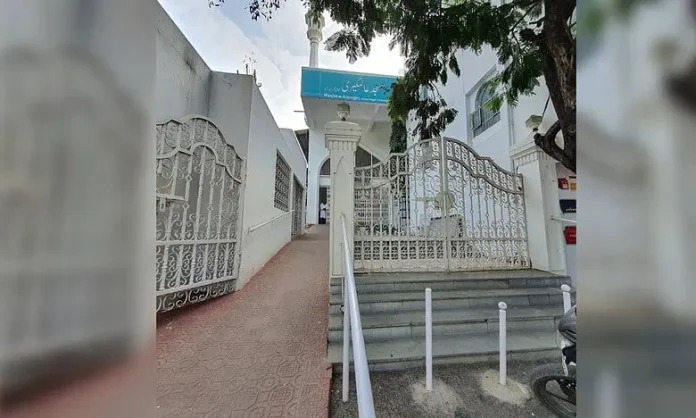Hyderabad: On a quiet Sunday afternoon in Shantinagar, instead of resting at home, dozens of residents—including many women—gathered at Masjid-e-Alamgiri. The purpose was not a religious sermon, but a health awareness lecture titled “Common Orthopedic Problems and Their Solution.”, reported the Siasat.
The session, delivered by orthopedic surgeon Dr. Muhammad Tanzeel Munawar, lasted nearly 90 minutes and kept the audience engaged with insights on bone and joint health. This marked the second in a series of monthly health talks organized by the Masjid-e-Alamgiri Committee, following an earlier lecture on urological issues.
Dr. Tanzeel emphasized that mosques should follow the example of Masjid-e-Nabvi, which was not only a place of worship but also a hub for education, social welfare, and community service. He praised committee president Basha Mohiuddin and member Zaheer Ahmed for their vision, while local corporator Mohammed Arif Rizwan called the initiative “a step in the right direction.”
Highlighting Islam’s emphasis on health, Dr. Tanzeel reminded the gathering of the Hadith: “A strong believer is better and more beloved to Allah than a weak believer.” He also quoted the Prophet ﷺ: “Take advantage of five before five—your youth before old age, your health before illness, your wealth before poverty, your free time before you become busy, and your life before death.” Calling health a divine blessing, he stressed the need for preventive care, lifestyle discipline, and early diagnosis. “Prevention is better than cure,” he reminded, pointing out that many people spend more on weddings and luxuries than on health checkups.
He spoke in detail about orthopedic issues like arthritis, back pain, scoliosis, neck pain, fractures, and spondylosis. He cautioned against excessive mobile phone use, citing the case of a 13-year-old girl who developed cervical spondylosis after using her phone for nearly 10 hours daily. He noted that sedentary lifestyles, especially after the COVID-19 pandemic, have accelerated orthopedic and metabolic disorders, with diseases earlier seen in the elderly now appearing among youngsters. He also warned about obesity, calling it “the root cause of all diseases.”
Instead of expensive treatments, Dr. Tanzeel urged people to adopt small but consistent lifestyle changes—less screen time, daily exercise, balanced diet, and sunlight exposure for Vitamin D. “A short morning walk in the sun can sometimes do more than medicines,” he said. He also stressed the importance of early diagnosis, reminding people that a long life with good health and good deeds is a true blessing.
The initiative is drawing appreciation for reviving the Islamic tradition of using mosques as centers for welfare, education, and community engagement. Attendees, including many women, welcomed the effort, noting that such sessions build health literacy and family well-being. The Masjid-e-Alamgiri Committee plans to continue the monthly lectures, covering a broad range of health issues. “Health is not something to be taken for granted. If we protect it, it protects us,” Dr. Tanzeel reminded the audience.
In a city where fast food and mobile addiction threaten healthy living, the initiative stands out as a meaningful step. Mosques are for public good, and such work should be encouraged and supported.




